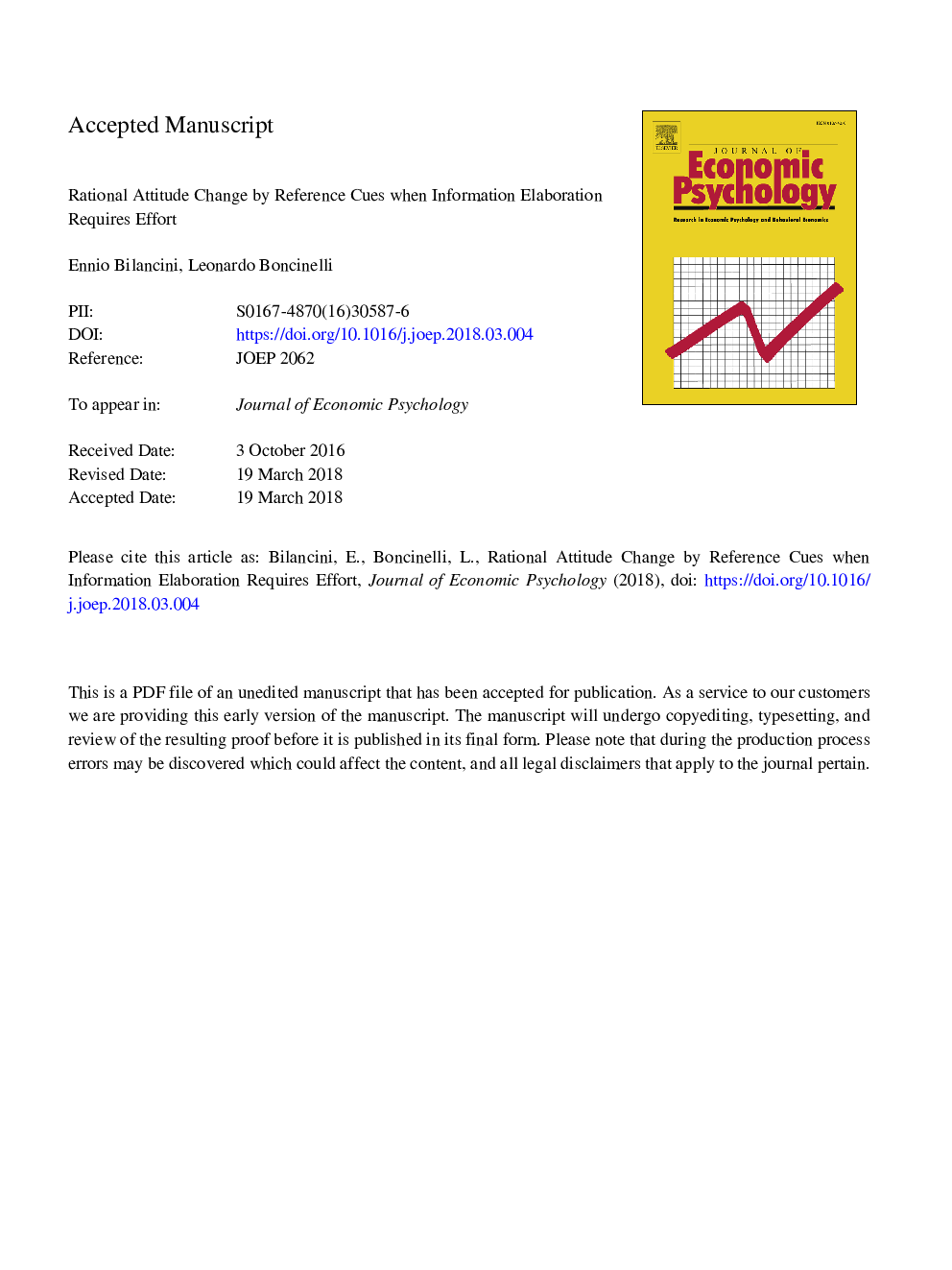| Article ID | Journal | Published Year | Pages | File Type |
|---|---|---|---|---|
| 7244041 | Journal of Economic Psychology | 2018 | 49 Pages |
Abstract
In this paper we develop a parsimonious model of decision-making that aims at capturing the determinants of consumers' attitude change in response to persuasive messages that exploit reference cues. Our model is inspired by dual-process theories omation elaboration, but does not introduce purely behavioral traits. The decision-maker receives a message containing an offer of unknown quality together with a reference cue that associates the offer with a category of offers, whose average quality is known. The decision-maker initially exerts little cognitive effort in processing the message, assessing the offer quality on the sole basis of the reference cue (acting as a “coarse thinker”). The decision-maker can then take a decision on the offer without further investigating or she can exert substantial cognitive effort to scrutinize the message carefully and obtain more precise knowledge of the offer quality. The proposed model predicts that the persuader can exploit reference cues to affect attitudes both directly (by inducing acceptance of offers) and indirectly (by inducing low cognitive effort, and hence influencing acceptance). This model matches several predictions of prominent psychological models of attitude change such as the Elaboration Likelihood Model and the Heuristic-Systematic Model.
Related Topics
Social Sciences and Humanities
Business, Management and Accounting
Marketing
Authors
Ennio Bilancini, Leonardo Boncinelli,
